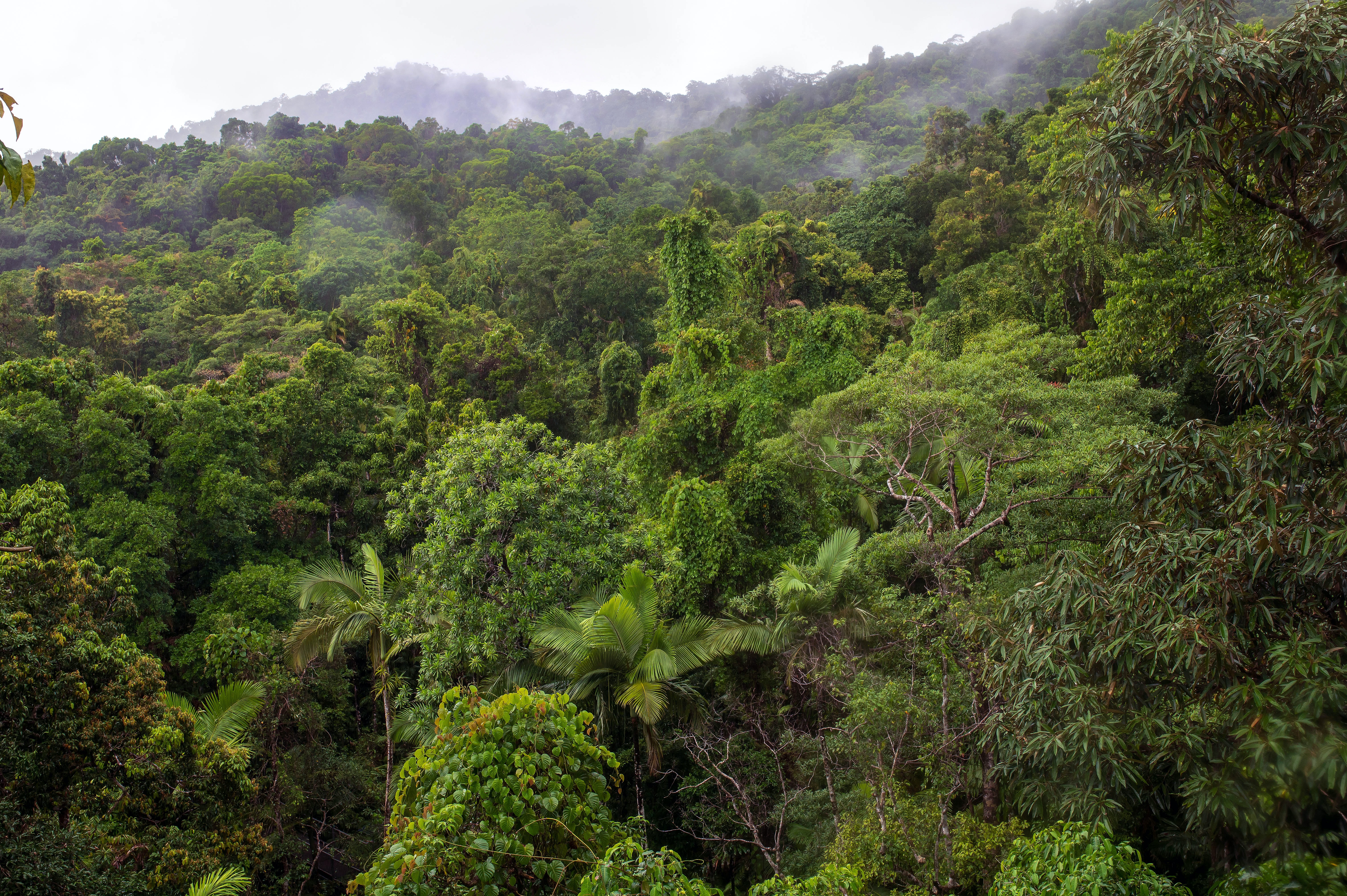PhD student Xueyuan Gao recently published an article in Earth System Dynamics: Exploration of a novel geoengineering solution: lighting up tropical forests at night.
Gao's paper investigates numerical experiments with a coupled Earth system model showing that large-scale nighttime artificial lighting in tropical forests will significantly increase carbon sink, local temperature, and precipitation. The approach also requires less energy than direct air carbon capture for capturing 1 t of carbon, suggesting that it could be a powerful climate mitigation option. Side effects include CO2 outgassing after the termination of the nighttime lighting and impacts on local wildlife.
Read the paper here.
Image courtesy of David Clode via Unsplash.


